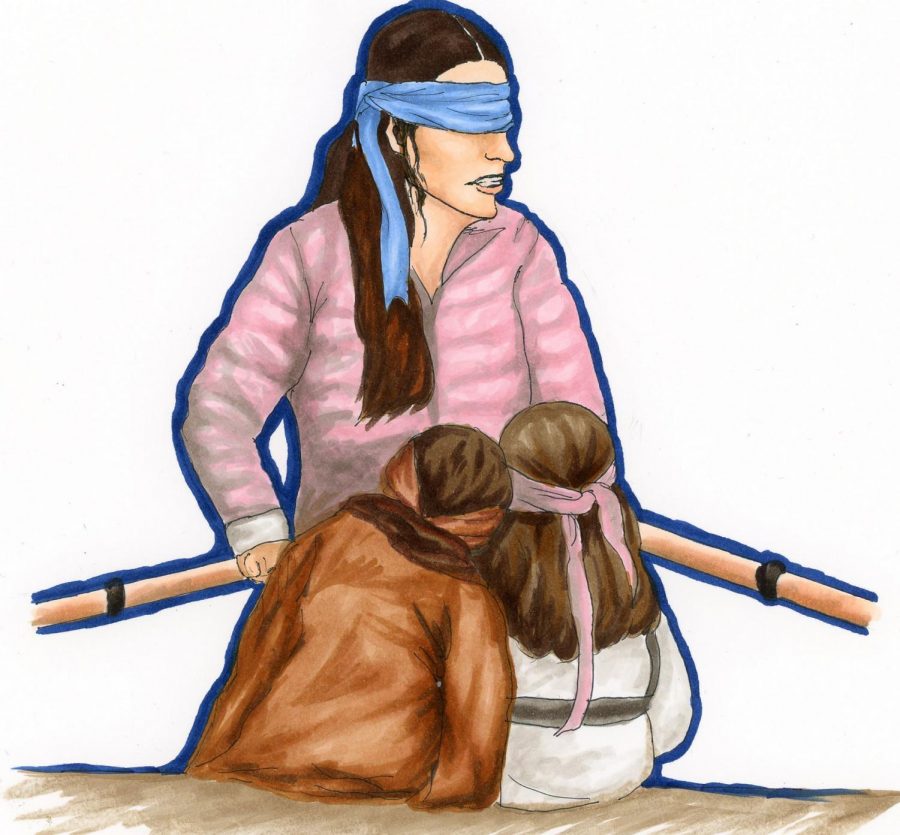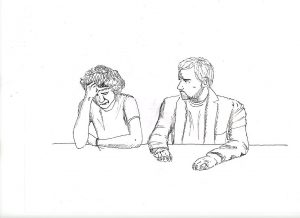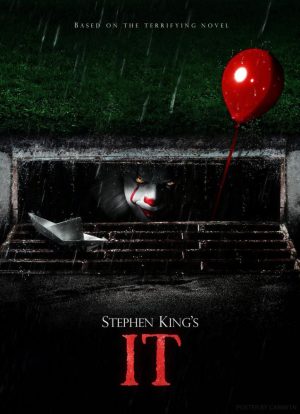Netflix’s “Bird Box” boxes itself in
February 15, 2019
Since its release, “Bird Box,” from director Susanne Bier, has been an enormous success for Netflix. The movie, based on a book of the same name by Josh Malerman, is about a mysterious suicide epidemic that starts sweeping the world. It follows the idea that if you see “it”— an omniscient supernatural horror — you either kill yourself or become enslaved to showing others its “beauty.” The film follows a mother and her children in their fight to survive in the new world.
Fans have taken to Twitter to flood the internet with positive “memes” and critics have written numerous op-eds about the movie being a medium for a social “call-to-action” about ableism, racism, gender roles and motherhood. Ultimately though,“Bird Box” feels uncomfortable. There’s nothing inherently wrong with it, and it follows a long line of other movies centered around a disability or inability to use one’s senses: “Hush” (deafness), “A Quiet Place” (speech), “A Nightmare on Elm Street” (sleep). However, “Bird Box” feels muddy from all angles.
Disability is featured as a prop, first and foremost. The big twist at the end — a school for the blind being a perfect sanctuary to escape monsters — seems to be exploiting disability for a gimmick. The book goes even darker, showing that many of the citizens of the sanctuary chose to blind themselves as a preventative measure against “it,” a fate that the protagonist refuses to bring onto herself and her children. This leaves readers with the impression that she has chosen to keep them all at risk and continues the use of disability as a pillar for the storyline. People with mental illnesses are pathologized as boogeymen and are depicted as “American Psycho” style antagonists that seek to disrupt via their natural, altered, disabled and unstable mind. The absence of a clear antagonist in the film means that viewers are bound to blame the mentally ill. Even if a viewer was to ignore the influence that “it” have on the mentally ill, the idea of a haunted psychiatric facility that crazy inmates break out of further demonstrates an irreconcilable “other,” whose only defining characteristic is its disability. Perhaps it’s an allegory for depression or suicide, but the vagueness leaves “Bird Box” open to interpretation.
This exploitation isn’t the only controversy that has started around the film. Complaints have erupted over the use of actual disaster footage. The video featured at the beginning of the film was pulled from a 2013 accident where a train carrying crude oil overturned in the town of Lac-Mégantic. Ultimately, 47 people were killed in the tragedy, according to the National Post. Lac-Mégantic Mayor Julie Morin commented on the issue to the Canadian Press, “I don’t know if this is happening all the time, but we are looking for assurances from Netflix that … they are going to remove [the footage].” Despite the attention, it appears that Netflix will leave the footage in the film.
Within the film industry, though, “Bird Box” is a triumph. Director Susanne Bier has been lauded as an example of a strong woman in Hollywood. Bier read the script for “Bird Box” seven years ago, as did the movie’s lead actress, Sandra Bullock, but both passed it over. On her return to the script, however, Bier told Vanity Fair, “It feels more relevant now; it feels like a more dystopian point in time.”
The ending twist, in which Bullock’s character sees the doctor who performed an ultrasound on her, feels gimmicky and poorly executed. Every minority character feels like token diversity in the film or a sacrificial lamb. The character of Tom is a perfect example. He enters a relationship with the main character, only to be killed off shortly after. His death is supposed to be emotional, but it comes off as unnecessary and crude. It could be touching, as an act of sacrifice, but it feels symbolic of the director needing to spark action rather than being relevant to the relationship and to further the plot. Malorie doesn’t change after the death. She doesn’t confront it.
The movie is just messy. It never explains what anything means, or why the mentally ill are not driven to suicide by “it.” Anton Chekhov, the famous writer, once gave the following book writing advice: “If in the first act you have hung a pistol on the wall, then in the following one it should be fired,” meaning that every plot addition should be intentional. In the first act, Olympia (Danielle Macdonald) alludes that she wants her child named after a Disney character like Ariel or Cinderella (Ella for short). Yet in one of the final scenes, a significant moment of hope – giving names, and thus a sense of permanence and longing for the future – is undermined by naming “Girl” after the late Olympia. Okay, great, she’s named after her mother, ignoring a thoughtful scene that first brought Malorie and Olympia together.
“Bird Box” makes no defining statement. The lack of direction plagues the movie. Is it a “Lord of the Flies” still commentary on human nature or a sweeping statement on disability? Malorie’s character struggles with being a survivor and a mother, but the contradiction is never resolved.
“Bird Box” is a success for a reason – we can interpret it however we want. But in the vacuum it creates, it falls short of its potential to actually make a statement or say something, and devolves into flashy horror.







